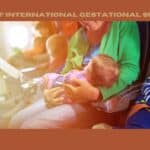Last Updated: 2009-02-25 14:02:09 -0400 (Reuters Health)
NEW YORK (Reuters Health) – Treatments used to induce ovulation appear to increase the overall risk of cancer, the results of a study published in the American Journal of Epidemiology suggest.
“Ovulation-inducing drugs are widely used for ovarian follicle stimulation, either as independent therapies or during in vitro fertilization cycles,” Dr. Ronit Calderon-Margalit, of Hadassah-Hebrew University, Jerusalem, Israel, and colleagues explain. “The scientific literature provides inconsistent information on the association between ovulation induction treatment and cancer incidence.”
To investigate further, the researchers examined data from 15,030 women enrolled in the Jerusalem Perinatal Study who gave birth between 1974 and 1976 and then participated in a postpartum survey. The women were linked with the Israel Cancer Registry to obtain information on the number of cancers diagnosed through 2004.
A total of 1,215 women developed cancer. The 567 women who received drug treatment to induce ovulation had a 36-percent increased risk of developing cancer at any site.
Treatment with ovulation-inducing drugs was not associated with ovarian cancer, but increased the risk of breast cancer by 42 percent; uterine cancer risk by more than 3-fold, and the risk of non-Hodgkin lymphoma by about 2.5-fold.
Treatment with the ovulation-inducing drug clomiphene specifically was associated with 4.6-times the risk of uterine cancer and 2.6-times the risk of malignant melanoma.
“The potential implications of this study relate firstly to the need of further research and better registries of fertility treatments,” Calderon-Margalit commented to Reuters Health.
“I believe that fertility treatments will continue, but if our findings will be confirmed by others, women who are treated with clomiphene, and perhaps other ovulation induction agents, will need screening for uterine cancer,” she added. Future research will potentially explain the role of hormones in the development of cancers such as malignant melanoma and non-Hodgkin lymphoma.
SOURCE: American Journal of Epidemiology, February 1, 2009.
Author Profile

- Jennifer Lahl, MA, BSN, RN, is founder and president of The Center for Bioethics and Culture Network. Lahl couples her 25 years of experience as a pediatric critical care nurse, a hospital administrator, and a senior-level nursing manager with a deep passion to speak for those who have no voice. Lahl’s writings have appeared in various publications including Cambridge University Press, the San Francisco Chronicle, the Dallas Morning News, and the American Journal of Bioethics. As a field expert, she is routinely interviewed on radio and television including ABC, CBS, PBS, and NPR. She is also called upon to speak alongside lawmakers and members of the scientific community, even being invited to speak to members of the European Parliament in Brussels to address issues of egg trafficking; she has three times addressed the United Nations during the Commission on the Status of Women on egg and womb trafficking.
Latest entries
 infertilityApril 23, 2024The Rise of International Gestational Surrogacy in the U.S.
infertilityApril 23, 2024The Rise of International Gestational Surrogacy in the U.S. Assisted Reproductive TechnologyApril 16, 2024Founder Jennifer Lahl’s Speech on Surrogacy to the Casablanca Declaration
Assisted Reproductive TechnologyApril 16, 2024Founder Jennifer Lahl’s Speech on Surrogacy to the Casablanca Declaration #BigFertilityFebruary 27, 2024No, Alabama Didn’t Ban IVF
#BigFertilityFebruary 27, 2024No, Alabama Didn’t Ban IVF ArticleSeptember 25, 2023The Little Engine That Could
ArticleSeptember 25, 2023The Little Engine That Could

